Bladder stones are hard deposits that can form in a dog’s urinary tract, causing discomfort and potentially leading to more serious health issues.
Understanding the causes and symptoms of bladder stones to detect and treat them early is crucial. Certain dog breeds, such as Dalmatians, are more prone to developing these stones. Veterinarians can diagnose bladder stones through X-rays, urinalysis, and ultrasound.
By understanding bladder stones and seeking prompt veterinary care, you can ensure the well-being of your furry friend. Here we explore what to do when dog died after bladder stone surgery. Keep reading if you’re dealing with a loss or looking to improve your pet’s post-surgery care routine.
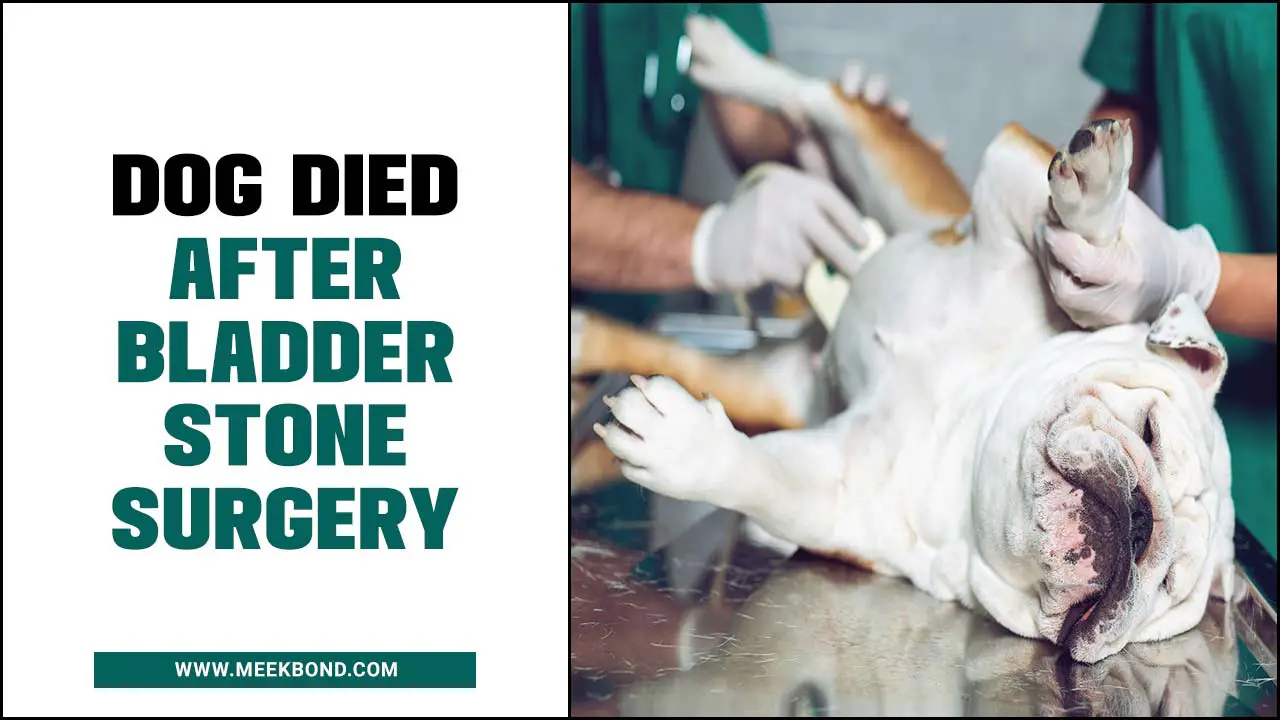
Dog Died After Bladder Stone Surgery – What To Do
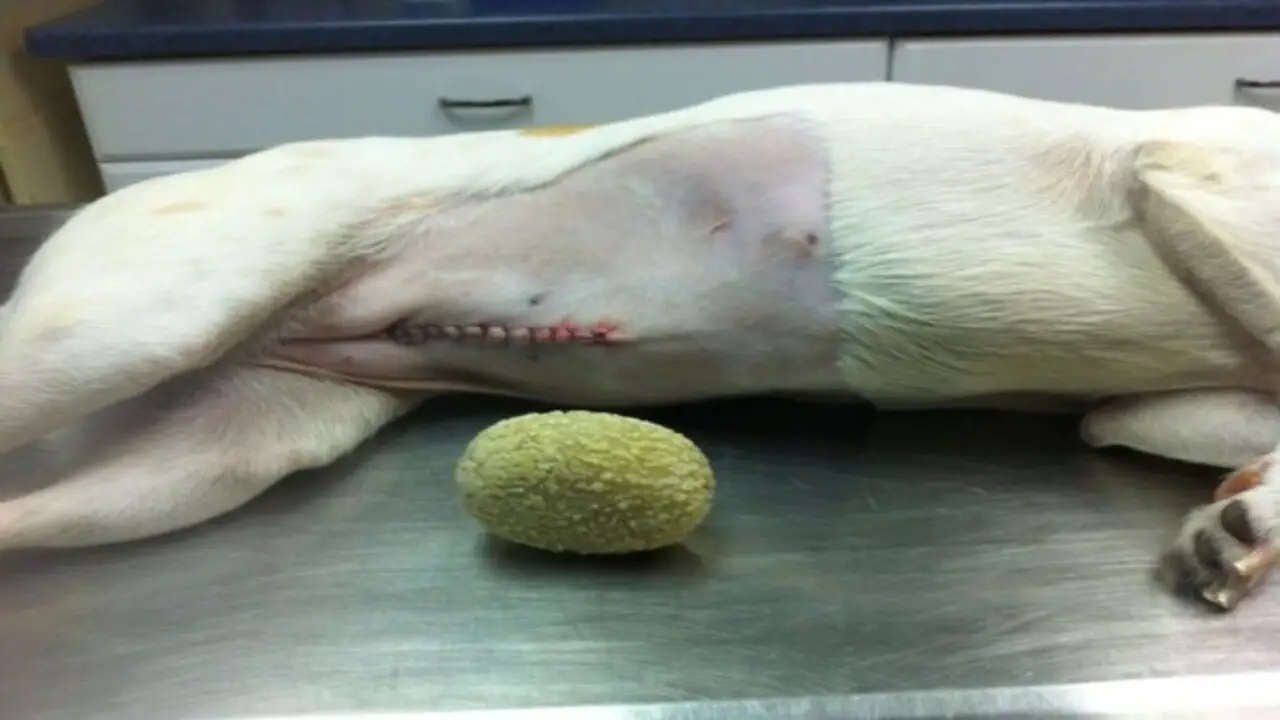
Losing a pet after bladder stone surgery can be a devastating experience. While it is important to take the time to grieve and process your emotions, practical steps also need to be taken. Here are some things to consider if your dog died after bladder stone surgery:
- – Contact your veterinarian: Inform your veterinarian about the situation and discuss any concerns or questions you may have. They can provide guidance and support during this difficult time.
- – Seek closure: Consider speaking with your veterinarian about the cause of your dog’s death. Understanding the circumstances can help bring closure and peace of mind.
- – Take care of yourself: Losing a pet can be emotionally draining. It is essential to prioritize self-care, seek support from loved ones, or consider counselling if needed.
- – Consider memorializing your dog: Honor your pet’s memory by creating a memorial or finding ways to commemorate their life. This could include planting a tree, creating a photo album, or donating to an animal charity in their name.
Remember, everyone, grieves differently, so give yourself time and space to heal from the loss of your beloved companion.
Diagnosis And Treatment Of Bladder Stones In Dogs
Prompt diagnosis is crucial for effective treatment of bladder stones in dogs. Treatment options may include surgery, prescription diets, and medications. In severe cases or when other treatments fail, surgical removal of the stones may be necessary.
The recovery period post-surgery varies depending on the type of stones and the dog’s condition. Close monitoring and follow-up appointments with the vet are essential for the dog’s overall well-being. Veterinary professionals use X-rays, urinalysis, and ultrasound to diagnose bladder stones. Urethral obstruction can be a serious complication that requires immediate attention.
Medical Processes Involved In Diagnosing Bladder Stones
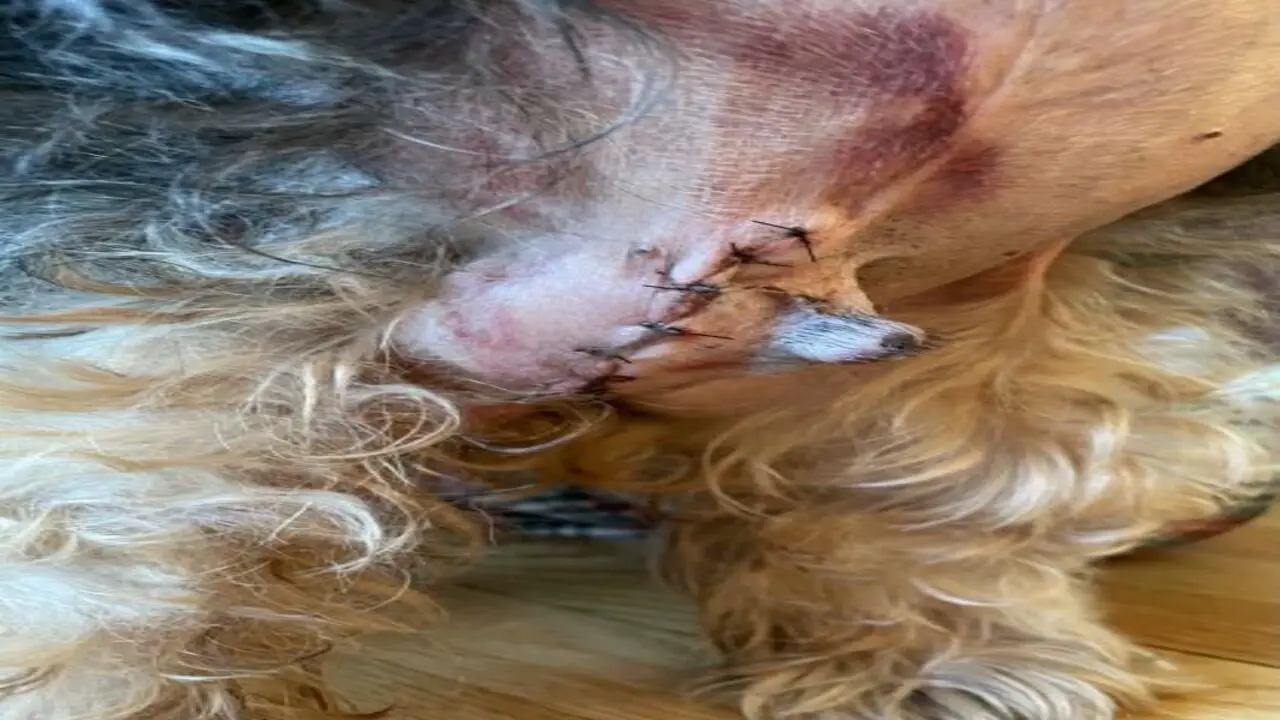
Veterinarians employ various diagnostic methods to detect bladder stones in dogs, including X-rays and ultrasound. Urinalysis is also conducted to identify signs of infection or abnormalities in the urine. Some diagnostic procedures, such as cystotomy, may require anaesthesia.
This procedure involves making an incision in the abdomen to access the bladder. The two common bladder stones in dogs are calcium oxalate and struvite stones. Evaluating the pH level of a dog’s urine can provide valuable insights into the formation of bladder stones.
Treatment Options For Bladder Stones In Dogs
Regarding treating bladder stones in dogs, several options are available. The choice of treatment will depend on the size and type of stones, as well as the overall health and condition of the dog. Here are some common treatment options for bladder stones in dogs:
- – Dietary management: In some cases, bladder stones can be dissolved or prevented from forming by changing the dog’s diet. This may involve feeding a special prescription diet formulated to prevent stone formation.
- – Medications: Certain medications can help to dissolve or prevent the formation of bladder stones. These medications work by altering the pH of the urine or by inhibiting the production of certain substances that contribute to stone formation.
- – Surgery: Surgery may be necessary to remove bladder stones in more severe cases. This is typically done under general anaesthesia and involves an incision in the abdomen to access and remove the stones.
- – Laser lithotripsy: This minimally invasive procedure uses laser energy to break up bladder stones into smaller fragments that can then be passed naturally through urination.
It is important to consult with a veterinarian to determine the most appropriate treatment option for your dog’s specific situation. They will be able to provide guidance based on your dog’s individual needs and circumstances.
Exploring The Causes Of Bladder Stones In Dogs
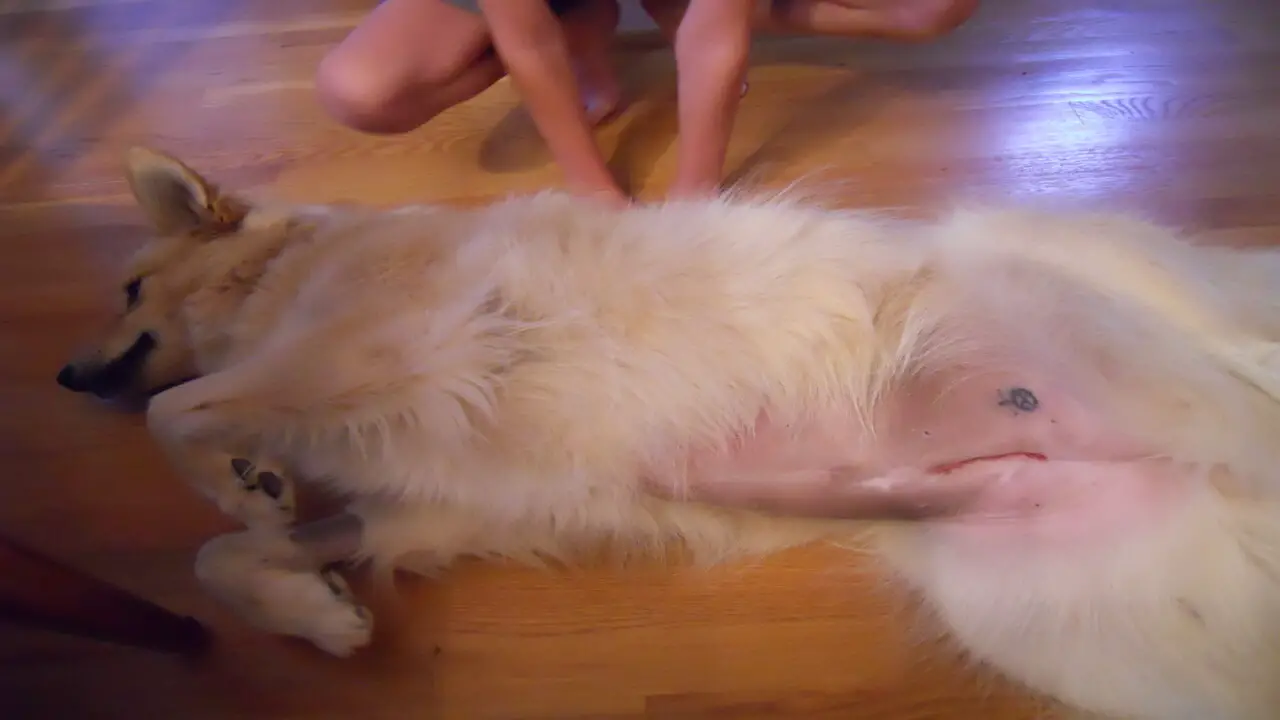
It is important to work closely with your veterinarian to determine the underlying cause of bladder stones in your dog and develop a treatment plan that addresses their needs. This may include dietary changes, medication, or surgery if necessary. Bladder stones can be a painful and potentially life-threatening condition for dogs. Several factors can contribute to the formation of bladder stones in dogs, including.
- – Diet: Certain types of dog food, particularly those high in minerals and low in moisture, can increase the risk of bladder stone formation.
- – Breed: Some dog breeds, such as Dalmatians and Miniature Schnauzers, are more prone to developing bladder stones.
- – Urinary tract infections: Infections in the urinary tract can create an environment conducive to stone formation.
- – Genetics: Some dogs may have a genetic predisposition to developing bladder stones.
- – Dehydration: Lack of proper hydration can contribute to forming crystals and stones in the bladder.
Recognizing Symptoms Of Bladder Stones In Dogs
If you notice any of these symptoms, it is important to consult with a veterinarian as soon as possible. They can perform a physical examination, conduct diagnostic tests such as urinalysis or imaging, and recommend appropriate treatment options.
Early intervention can help prevent complications like bladder stone obstruction or infection, which can be life-threatening for your furry friend. Recognizing symptoms of bladder stones in dogs is crucial for early detection and treatment. Some common signs to look out for include the following.
- – Frequent urination or straining to urinate
- – Blood in the urine
- – Discomfort or pain while urinating
- – Urinary accidents in the house
- – Lethargy and loss of appetite
The Journey Of Recovery After Bladder Stone Surgery In Dogs
Recovering from bladder stone surgery can be a challenging journey for dogs. It is important to closely monitor their progress and follow the veterinarian’s post-operative instructions to ensure a smooth recovery. Here are some key points to keep in mind:
- – Pain management: Dogs may experience discomfort following surgery, so providing them with appropriate pain medication as the vet prescribes is crucial.
- – Restricted activity: Dogs should avoid strenuous activities such as jumping or running until they fully recover. This will allow the surgical site to heal properly and minimize the risk of complications.
- – Dietary changes: The veterinarian may recommend a special diet to prevent the formation of new bladder stones. It is important to strictly adhere to this dietary plan and provide your dog with plenty of fresh water to promote urinary tract health.
- – Monitoring urine output: Keep an eye on your dog’s urination frequency and any changes in colour or odour. Contact your vet if you notice any abnormalities indicating a potential complication.
- – Follow-up appointments: Regular check-ups with the veterinarian are essential to monitor your dog’s progress and ensure that they are healing properly. These appointments also allow you to address concerns or questions about your dog’s recovery.
Remember, every dog is unique, and their recovery timeline may vary. With proper care, attention, and veterinary guidance, most dogs can recover from bladder stone surgery and regain their normal quality of life.
Necessary Care And Precautions During Recovery
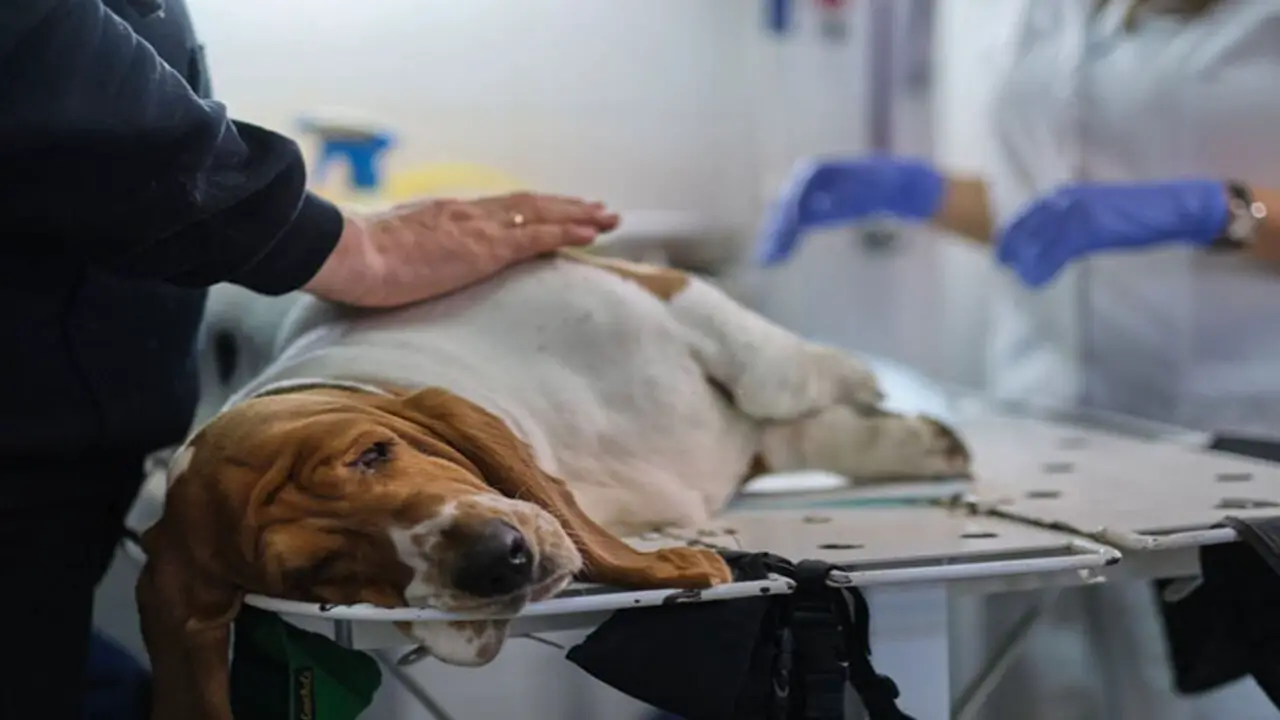
Providing a comfortable and calm environment for the dog is crucial for a speedy recovery after bladder stone surgery. Minimizing physical activity and preventing access to stairs or high surfaces can help prevent complications during healing.
It is important to strictly adhere to the prescribed medication schedule, including antibiotics and pain relief, to ensure a successful recovery. Monitoring the dog’s urination patterns and overall behavior is essential for detecting any signs of infection or discomfort early. Regular communication with the veterinarian and following their instructions diligently is vital for a smooth and uncomplicated recovery.
Dealing With The Loss: When Surgery Doesn’t Guarantee Survival
Coping with losing a beloved pet can be incredibly challenging, especially when surgery doesn’t guarantee survival. It’s important to recognize that bladder stone surgery, like any medical procedure, carries risks and potential complications. Despite the best efforts of veterinarians, some dogs may not survive the surgery or experience complications during recovery.
Grieving is a personal process, and allowing oneself time and space to heal emotionally is crucial. Seeking support from friends, family, or support groups can also be helpful in navigating through the difficult journey of loss. Remembering and cherishing the memories of our furry friends can provide comfort and solace during the grieving process.
How To Cope With The Loss Of Your Pet Post-Surgery
Coping with the loss of a pet after bladder stone surgery can be an emotionally devastating experience. It’s important to allow yourself to grieve and express your emotions correctly. Seek support from loved ones or professional resources, such as grief counselling or pet loss support groups.
Creating a memorial or tribute to your pet can provide a sense of closure and comfort. Remember to take care of yourself during this challenging time by practising self-care and engaging in activities that bring you comfort or joy.
Conclusion
Losing a beloved pet is a heartbreaking experience, especially after going through the challenges of bladder stone surgery. It’s important to remember that sometimes surgery may not guarantee survival, and it can be difficult to cope with such loss.
During recovery, providing necessary care and precautions is crucial to ensure your pet’s well-being. However, taking care of yourself during this difficult time is also essential. Allow yourself to grieve and seek support from loved ones or pet loss support groups. Remember that feeling a range of emotions is okay, and healing takes time.
Avoid common mistakes in post-surgery care, such as neglecting follow-up appointments or not providing proper pain management. You can find solace and healing by caring for yourself and honouring your pet’s memory. Hope now you understand what to do when dog died after bladder stone surgery.
Frequently Asked Questions
What Are The Complications Of Bladder Stone Surgery In Dogs?
Complications of bladder stone surgery in dogs include bleeding, infection, and anaesthesia risks. Additionally, dogs may experience difficulty urinating or develop urinary tract infections post-surgery.
Can Bladder Stones Cause Death In Dogs?
Bladder stones in dogs can lead to death if left untreated, or complications arise during surgery. They can cause urinary tract infections, blockages, and other health issues. Monitor your dog’s behavior and seek veterinary care for early detection and treatment to prevent serious problems and potential mortality.
What Is The Success Rate Of Bladder Stone Removal In Dogs?
The success rate of bladder stone removal in dogs varies based on factors like stone size, type, and overall health. This surgery generally has a high success rate, but it’s important to consider potential risks and discuss them with a veterinarian.
What To Expect After Your Dog Has Bladder Stone Surgery?
After bladder stone surgery, knowing what to expect for your dog’s recovery is essential. They may experience discomfort and pain, but the veterinarian can prescribe pain medication and antibiotics.
Why Did My Dog Die After Bladder Stone Surgery?
Possible reasons for losing a dog after bladder stone surgery include anaesthesia complications, infection, or underlying health conditions. It is crucial to consult with your vet about potential risks and complications beforehand.

Aquarium passion is all about connecting with the aquatic life and providing education to the public on the importance of these creatures. We showcase a wide variety of marine life through our exhibits as well as working with schools to provide unique learning opportunities for students of all ages.









